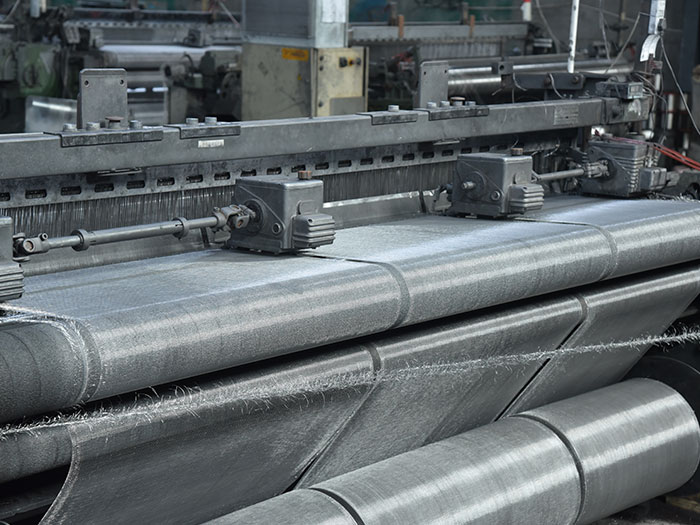Your Position: Home - Doors & Windows Accessories - Window Screen Mesh Types Explained
When choosing window screens for your home, the type of mesh you select is crucial. Different mesh materials offer distinct advantages, whether it’s enhanced durability, better visibility, or improved airflow. Understanding the various window screen mesh types helps ensure you choose the right option for your needs. Let’s explore the most common types of window screen mesh, their features, and ideal uses.
Fiberglass is the most common and affordable window screen material, used in a variety of residential settings. Known for its flexibility and ease of installation, fiberglass screens offer great visibility and airflow, making them a popular choice for homes.
Cost-effective and widely available.
Resistant to rust and corrosion.
Good visibility through the mesh.
Flexible, making it easy to install.
Less durable compared to other materials.
Can tear easily if mishandled.
Fiberglass mesh works best in mild climates and areas where screen durability isn’t a primary concern. It’s ideal for standard window openings and screen doors in homes that don’t experience extreme weather conditions.
Aluminum mesh is a more durable alternative to fiberglass. It’s sturdy and resistant to corrosion, making it an excellent option for homes in humid or coastal regions. Aluminum window screens provide good visibility and long-lasting performance, though they may be slightly more expensive than fiberglass.

Highly durable and resistant to corrosion.
Offers great visibility.
Holds up well in harsh weather conditions.
Prone to denting or creasing.
Reflects more light, which can reduce outward visibility slightly.
Aluminum mesh is an ideal choice for homeowners who prioritize durability and live in areas with challenging weather conditions, such as rain, salt air, or high humidity.
For households with pets, pet-resistant mesh is designed to withstand the scratching and pressure that animals often exert on screens. Made from stronger materials like vinyl-coated polyester, this mesh type is thicker and more resilient, preventing damage caused by paws and claws.
Extremely durable and resistant to damage.
Designed specifically for homes with pets.
Long-lasting compared to standard mesh types.
Thicker, which can slightly reduce airflow and visibility.
More expensive than standard mesh.
Pet-resistant mesh is perfect for pet owners who want to prevent frequent repairs or replacements caused by their pets’ behavior.
Solar mesh, also known as sun control screens, is specifically designed to block out a significant amount of the sun’s heat and UV rays. This type of mesh is made from heavier, denser materials, helping to reduce indoor temperatures and protect your furniture from sun damage.
Blocks a large percentage of UV rays.
Reduces glare and heat penetration.
Related articles:Energy-efficient, as it helps lower cooling costs.
Heavier, which can reduce visibility and airflow.
Higher cost due to the specialized material.
Solar mesh is ideal for homes in hot climates where controlling indoor temperatures and preventing sun damage are major concerns. It is commonly used in areas exposed to direct sunlight.
Stainless steel mesh is the toughest and most durable option available. Often used in high-security settings, this mesh is resistant to corrosion, impact, and wear. It’s also ideal for areas with extreme weather conditions and high-traffic zones.
Extremely strong and durable.
Resistant to rust, corrosion, and damage.
Provides excellent protection from insects and debris.
More expensive than other types of mesh.
Heavier, which can slightly reduce visibility and airflow.
Stainless steel mesh is perfect for homeowners seeking long-term durability, especially in areas prone to harsh environmental conditions, or for those needing extra security in their windows.
Copper bronze mesh is a more decorative option that offers a distinctive look. Over time, the copper mesh oxidizes, developing a beautiful patina, which adds character to traditional or rustic homes. This type of mesh is also highly durable and resistant to corrosion, especially in coastal areas.
Visually appealing with a classic look.
Durable and resistant to rust and corrosion.
Adds a unique touch to historical or luxury homes.
Higher cost due to the use of copper.
Oxidation can change the color over time, which may not be desirable for everyone.
Copper bronze mesh is ideal for homeowners who want a high-end, aesthetically pleasing option that offers both functionality and a timeless appearance.
No-see-um mesh is specifically designed for areas where tiny insects, such as gnats and sand flies, are a problem. The mesh is woven more tightly than standard screens, providing excellent protection against small pests while still allowing airflow.
Excellent for keeping out small insects.
Offers good airflow.
Ideal for areas with a lot of tiny pests.
Slightly reduced visibility due to the tighter weave.
Can be more expensive than standard fiberglass or aluminum mesh.
No-see-um mesh is perfect for homes near bodies of water, marshy areas, or anywhere small insects are a nuisance.
Choosing the right window screen mesh type depends on your specific needs, whether it’s protection from pests, durability for pets, or sun control. Fiberglass is affordable and versatile, while aluminum and stainless steel offer long-term durability. Pet-resistant mesh is excellent for homes with animals, and copper bronze provides an elegant, decorative option. Understanding the unique features and benefits of each mesh type will help you make the right choice for your home’s comfort and safety.
102
0
0
Comments
All Comments (0)